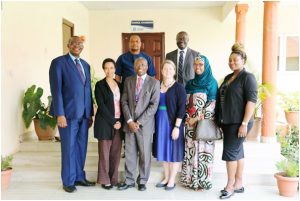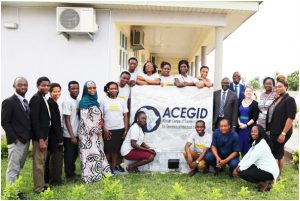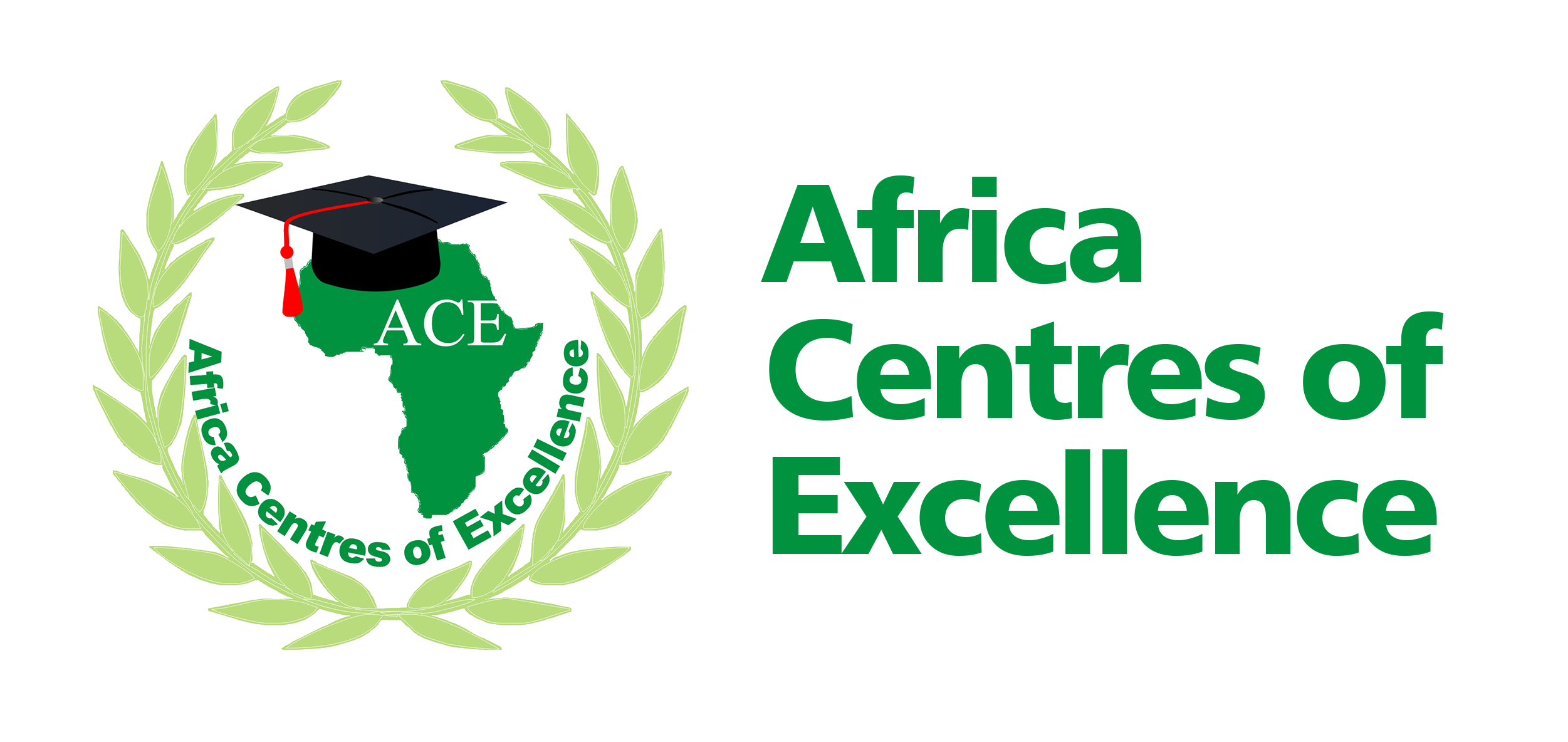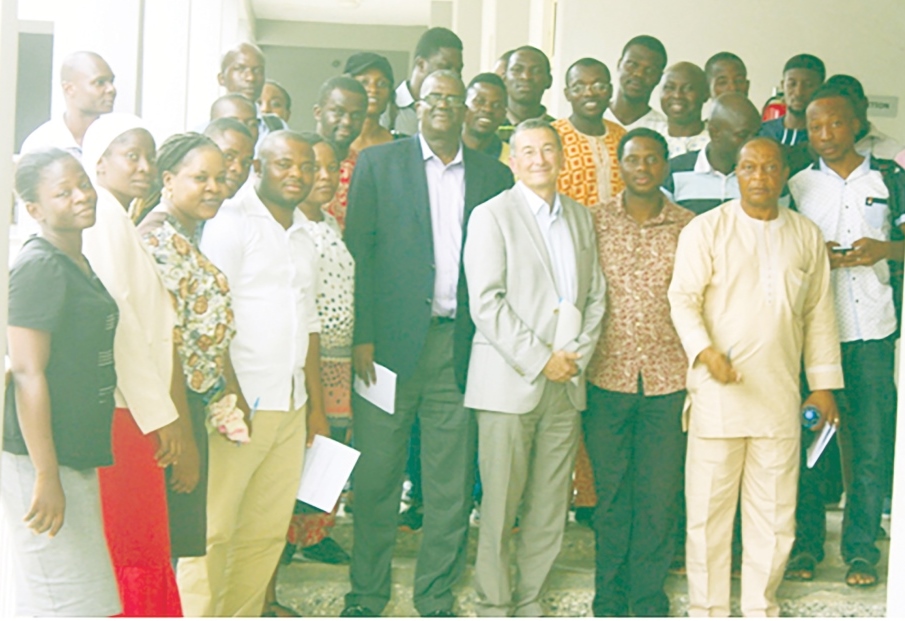As part of their oversight functions, combined teams of experts and officials, drawn from the World Bank, the Association of African Universities (AAU) and the National Universities Commission (NUC) ACE Secretariat have paid supervision visits to seven out of the 10 Africa Centres of Excellence (ACE) in Nigeria.
The Centres visited were the ACE in Phytomedicine Research and Development (ACEPRD), University of Jos (UniJos); ACE on Neglected Tropical Diseases and Forensic Biotechnology (ACENTDFB), Ahmadu Bello University (ABU), Zaria; ACE in ICT-Driven Knowledge Park (OAK-Park), ObafemiAwolowo University (OAU), Ile-Ife and the ACE for Genomics of Infectious Diseases (ACEGID), Redeemer’s University, Ede.
Others were the Centre for Agricultural Development and Sustainable Environment (CEADESE), Federal University of Agriculture, Abeokuta (FUNAAB); Centre for Reproductive Health and Innovation (CERHI), University of Benin (UNIBEN) and the Centre for Dryland Agriculture (CDA), Bayero University, Kano (BUK).
In the teams were, Ms. Aisha Garba, from the World Bank, Nigeria Country Office, Professor Jonathan Mba, from the AAU, World Bank Consultants, Prof. Tenagne Haile-Mariam and Dr. Carl Larsen as well as four World Bank/AAU Experts. The Experts and their thematic areas of specialty were, Professor Raphael Wahome (Agriculture), Professor Mamadou Diallo (STEM), Professor Xavier Michel (STEM), Prof. Michelle Niescierenko (Health) and Professor Hadiza Galadanci (Health).
The main objective of the visit was to gather first-hand information on progress being made by the ACEs, towards achieving the general objectives of the ACE project and their Disbursement-Linked Indicators (DLIs). The teams carried out physical inspection of the facilities of the Centres and interacted with the Centres’ management and their students.
The visit also afforded the teams the opportunity to interact with the Vice-Chancellors and the management of the universities to ascertain the levels of cordiality and commitment of the universities to the ACEs.
Professor Diallo, who visited the OAK-Park at OAU, Ile-Ife, encouraged the Centre to continue to reach out to neighbouring countries, in a bid to enrol more regional students and also ensure knowledge sharing, through partnerships, collaborations and co-operations with relevant partners.
The Acting Vice-Chancellor, Professor Anthony Elujoba, thanked the World Bank, AAU and NUC for their efforts at ensuring that the ACE project succeeds. He expressed willingness to support the Centre to achieve the set objectives. He also informed the visitors that he was leading the Centre’s team in its drive to recruit regional students by visiting some West and Central African countries, an effort that was already yielding some results.

The ACEGID Supervision Team with the Vice Chancellor, Redeemer’s University, Prof. Z. Debo Adeyewa, third left and Centre Leader, Prof. Christian Happi (1st right, 2nd row)
Professors Niescierenko and Galadanci visited CERHI at UNIBEN; ACEPRD at UniJos; ACEGID at Redeemer’s and ACENTDFB, at ABU, Zaria. At UNIBEN, the Vice-Chancellor, Professor F.F.O. Orumwense, thanked the team for coming and reassured the experts of the University’s continued support for the success of the ACE Project beyond its life span.
The team shared with the Vice Chancellor, some of CERHI’s challenges, which, it said, the Centre was working hard to address in order to be more stable.
Dr. Larsen and Professor Wahome visited CEADESE at FUNAAB and CDA at BUK, where the former stressed the need for visionary leadership, strong support from the University’s management and support of the wider staff of the University, for the Centre to function excellently. He informed the management of BUK that the performance of the Centre was outstanding.
In all, the Centres were encouraged to fast-track the process of international accreditation, reach out to to neighbouring countries to enrol more regional students, expand their regional scope, import talents and scale up international partnerships. They should also ensure knowledge-sharing, through partnerships, collaborations and co-operations with relevant partners; connect to global knowledge and information, so as to be real time; encourage private sector involvement in the development of students, taking cognisance of the fact that the private sector is the major end user of university output; and also leverage on existing body of knowledge and research.

The Team with the ACEGID Centre Leader, Deputy Centre Leader and their students

